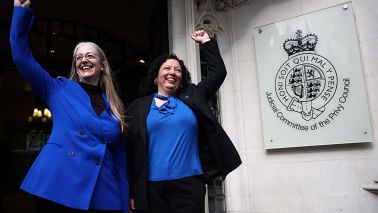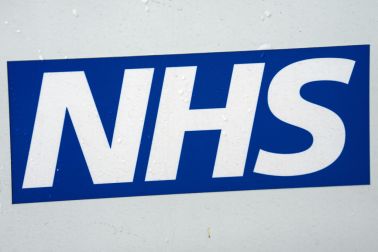There are no big policy surprises in the Tory manifesto – not least because the major announcements on tax, immigration, welfare, housing and social care were all revealed before the document was published (James Heale has a helpful list here).
As already reported, a fifth consecutive Conservative government would cut employee National Insurance by another 2p, totalling a £1,300 tax cut for the average worker with the 4p that has already been cut; revive the Help to Buy Scheme that enables first-time buyers to have deposits of just 5 per cent (and unfortunately led to house prices increasing in Greater London); reduce immigration by capping work and family visas (with no details about how this cap would be calculated); and cut £12 billion worth of benefit spending to pay for it all. The only major new announcement is a pledge to abolish self-employed National Insurance over the next five years, a tax cut worth £2.6 billion.
It’s evidence of just how effective the tax thresholds freezes are at pulling people into paying more tax
But the Tory manifesto was also unsurprising for another reason: Rishi Sunak revealed a plan that is essentially a continuation of the past two years – including the direction of the tax burden.
Over the past five years, the tax burden has been rising under the Tories, headed now for a near-post war high. According to today’s manifesto, this doesn’t change. According to calculations done by The Spectator’s Data Hub, today’s £17 billions’ worth of tax cut announcements mean the tax burden would rise at a slower, but still steady rate, on track to hit the highest level since 1950 by the end of the next Parliament.
The changes Sunak set out today will see taxes as a share of GDP rise to 36.7 per cent by 2028-29 – down from the 37.1 per cent the Office for Budget Responsibility forecast based on Jeremy Hunt’s March Budget, but up from the 36.5 per cent the tax burden currently sits at now. These calculations assume that the economy will grow at the same lacklustre rate as forecast in March – predictions which could be defied, but nevertheless remain some of the most optimistic scenarios for the UK among independent forecasters.
It’s evidence of just how painful and effective the freezes to tax thresholds are at pulling people into paying more tax. Even substantial tax cuts are not enough to off-set what is happening each year as workers are dragged into paying higher rates. Rather than course-correct in the next Parliament and actually get the tax burden falling, it seems the same game is being played: ‘We are cutting taxes to give working people financial security,’ the manifesto reads, while the details of the document show the tax burden continuing to rise.
This is not going to go down well with the grassroots of the party – never mind the Tory MPs who were hoping to offer up undisputed tax cuts on doorsteps. There is already frustration that Sunak and Hunt have decided to keep chipping at NI, when the tax cut doesn’t seem to have earned the party much credit with the public (Sunak defended the tax cut today as a correction to the unfairness of being asked to pay tax on earnings twice).
Major changes to inheritance tax were not (realistically) expected: as much as parts of his party want to see this happen, it was decided a while back that this would not be the right look for the Tories, especially so soon after an inflation crisis. But the lack of any other tax promise will no doubt frustrate large parts of the party, who are deeply critical of a Conservative government lifting the tax burden – and continuing to do so in its plans for the next five years.
‘Our economy has turned a corner’, Sunak said once again when launching his party’s manifesto today. Without offering up any major change in trajectory on tax – nor any major reform in areas like the NHS or the planning system – Sunak seems to have used this manifesto to ask voters, first, if they agree with them that the plan in 'working’, and second, if they’d like to continue along the policy path of the last few years.
Watch more analysis from Katy Balls, Kate Andrews, and James Heale on Spectator TV:
Join Fraser Nelson, Katy Balls and Kate Andrews for a post-election live recording of Coffee House Shots in Westminster, Thu 11 July. Bar opens 6.30pm, recording starts 7pm
This article is free to read
To unlock more articles, subscribe to get 3 months of unlimited access for just $5







Comments
Join the debate for just £1 a month
Be part of the conversation with other Spectator readers by getting your first three months for £3.
UNLOCK ACCESS Just £1 a monthAlready a subscriber? Log in